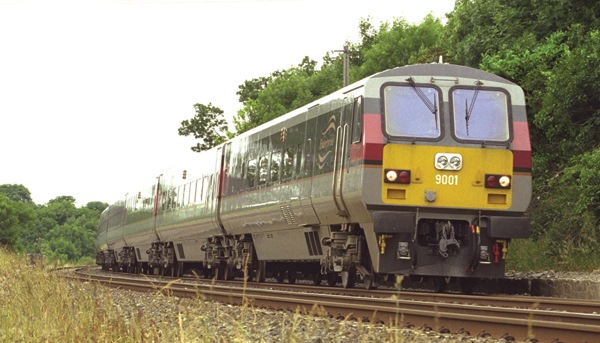Links and video links
The NSMC’s work since December focused on transport, environmental and economic matters amid calls for more efficient spending and communication.
Justice is not part of the North/South Ministerial Council’s work, but enforcing transport and environmental law was a common theme in late 2009 and early 2010. Managing government money, though, is the main priority of the two governments and change could be on the way as a result.
The Council’s last plenary was held in Limavady on 14 December (agendaNi issue 34, p.100) and the next will be held by the Irish Government in either June or July.
This was followed up two days later by a tourism sectoral meeting between Arlene Foster and Martin Cullen in Clogher, County Tyrone, which heard how “very difficult global economic conditions” resulted in a drop in visitors to the island last year. Tourism Ireland wants to increase all-island visitor numbers by 3 per cent in 2010 and raise the Northern Ireland figure by 10 per cent.
Foster also met Irish Enterprise Minister Mary Coughlan on the same day. Both were informed that InterTradeIreland planned to create 125 jobs and get 500
new firms into cross-border trade in 2010.
European funding came under scrutiny when Brian Lenihan and Sammy Wilson met in Dublin on 17 February. Four specific needs for more funding had previously been identified i.e. victims and survivors of the Troubles, participation by underrepresented groups including Protestants, and projects in the North West and involving Scotland. The ministers were satisfied that these were being tackled and this work would continue in 2010.
Noel Dempsey, Conor Murphy and Edwin Poots meanwhile discussed transport in Newry on 3 March.
Passenger numbers on the Dublin-Belfast railway had increased since the Malahide viaduct’s reopening. The two rail companies “continue[d] to consider” harmonising their fares on the line but were currently more focused on increasing passenger numbers, which would of course increase income.
Drivers who park wrongly or evade road tolls will not be able to hide behind the border from now on. Their details are being shared across the border through a new pilot scheme.
Poots was in Dublin two days later to meet John Gormley on environmental matters. A “meaningful discussion” on waste took place with the ministers welcoming the “repatriation” of illegally dumped waste from North to South. Work on two illegal dumps is expected to start in September or October. The two environment agencies were also developing a common set of environmental indicators.
While hosting the agriculture meeting on 31 March (see opposite page), Michelle Gildernew also discussed the state of Lough Foyle and Carlingford Lough with Conor Lenihan. They banned the taking of salmon, sea trout and brown trout from the rivers Finn and Foyle, to help conserve those stocks.
In a time of tight budgets, the St Andrews Agreement efficiency review will make relevant reading at the next plenary. Given the financial constraints on both governments, it is highly unlikely that any new bodies will be created and the existing ones will be held more accountable for their spending.
Their current approved budgets total £152.9 million (€196.2 million). Almost a third of this sum went to Tourism Ireland (£55.7 million/€71.3 million) following by equal sums of £33.6 million (€43.1 million) for Foras na Gaeilge and Waterways Ireland.
As the name suggests, the Council revolves around ministerial meetings although Edwin Poots has suggested that these need not be in person. Ministers, he found, did not have to go to every meeting and could communicate by video link. It would also save petrol.
“I do not see that there is any necessity at each point for there to be face-to-face meetings so I would be very happy to engage in further telecommunications to do these meetings,” he said.
agendaNi understands that John Gormley is still considering the offer and thinks video-conferencing sometimes has its merits. He also, though, appreciates the benefits of informal discussions over lunch and presentations done in person, both of which need a physical presence.






